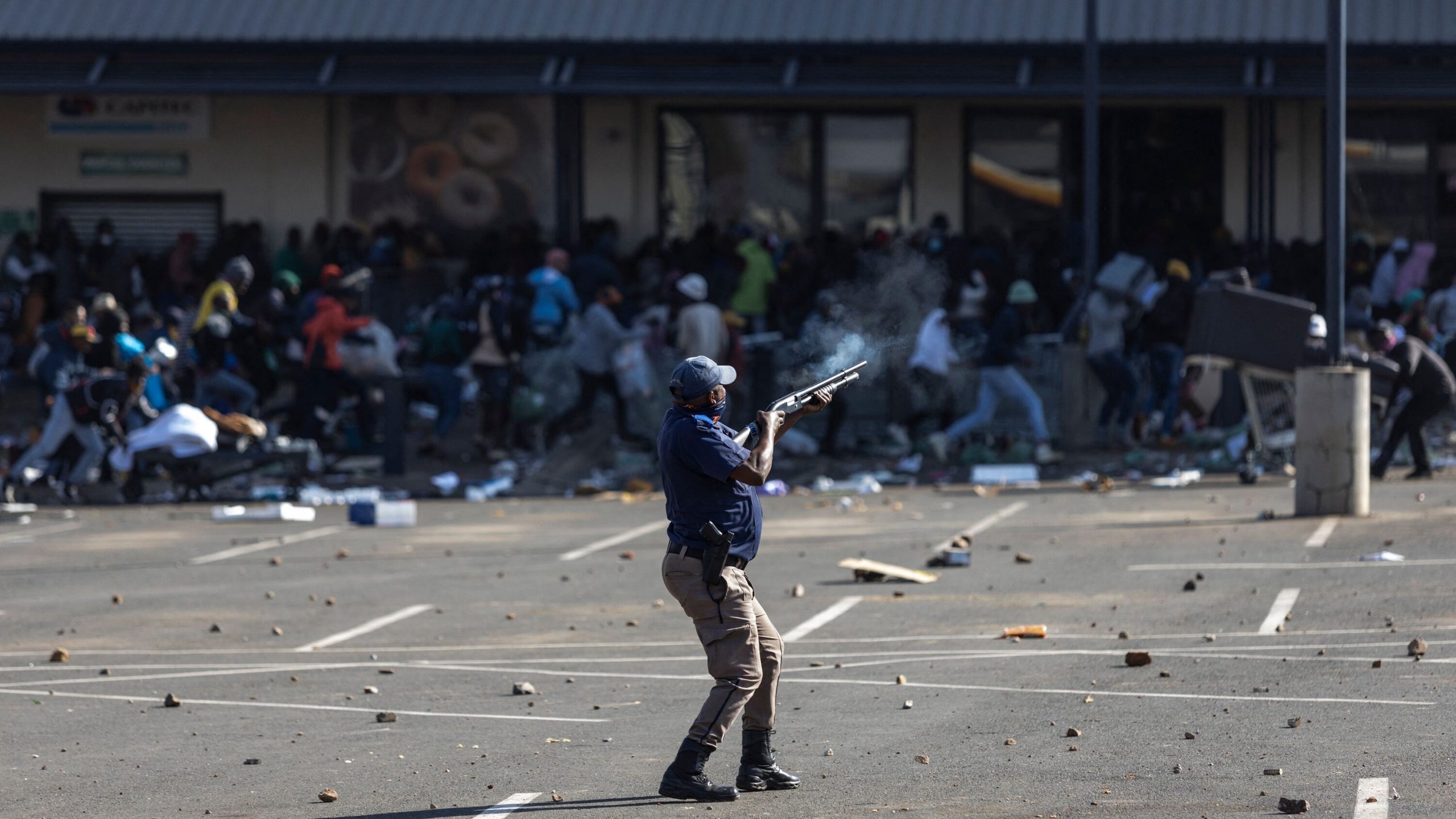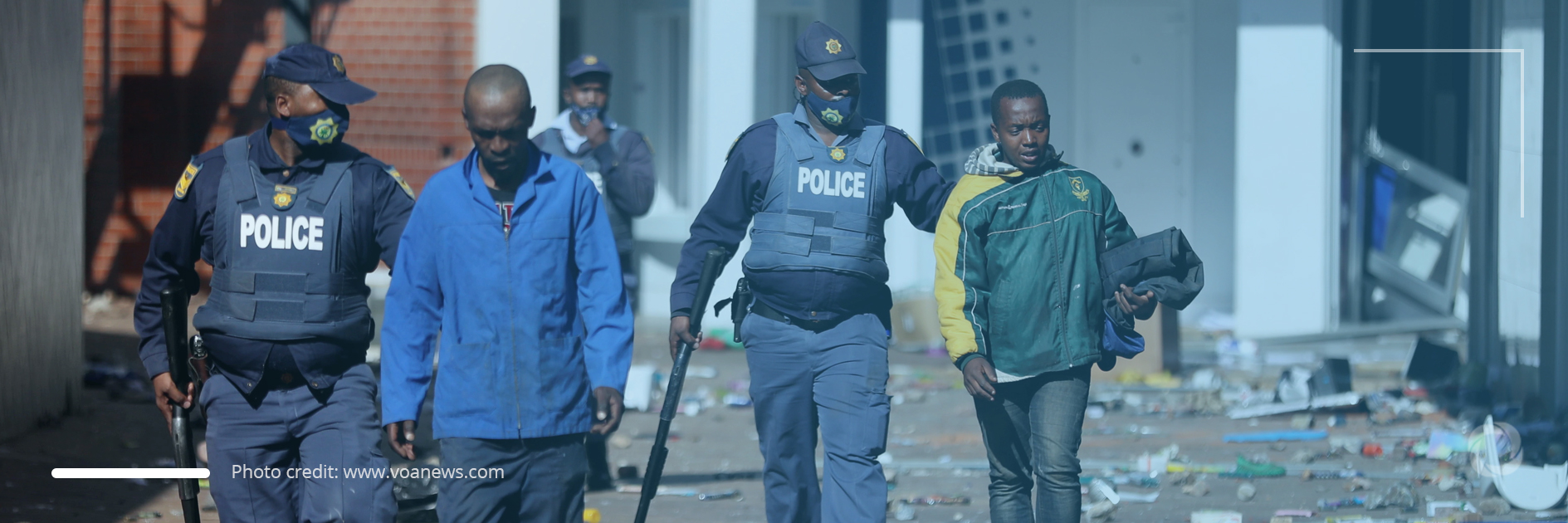If there is one word to currently describe South Africa, “chaos” would be appropriate. In recent weeks, protests have broken out across several provinces in South Africa triggering huge levels of robberies and burglaries and causing dozens of deaths.
The riots erupted shortly after former President Jacob Zuma (2009-2018) was arrested on July 7 following his refusal to appear before an anti-corruption commission investigating acts of corruption allegedly committed during his presidency.

The decision to convict Jacob Zuma aroused dissatisfaction among his supporters who claim that, together with Zuma, they are the victims of the political repression launched by Zuma’s successor, Cyril Ramaphosa.
 Fueled by economic issues that have been exacerbated by the COVID-19 pandemic, the unrest has affected a wide range of social sectors. Themba Moeti, Chief Executive Officer of South Africa’s Health Systems Trust, told DevelopmentAid.
Fueled by economic issues that have been exacerbated by the COVID-19 pandemic, the unrest has affected a wide range of social sectors. Themba Moeti, Chief Executive Officer of South Africa’s Health Systems Trust, told DevelopmentAid.
“Health services in the affected areas were significantly impacted by a week of civil unrest (9 – 17 July) which limited access to health services for patients and health workers, disrupting public transport and the movement of goods.” He added that the COVID-19 vaccine roll-out had also been affected in certain areas such as the KwaZulu-Natal and Gauteng provinces.
The Department of Health South Africa confirmed this information, noting that dozens of factories producing food and medicine had also been attacked which “disrupted access to essential healthcare services, including the collection of chronic medication by TB, HIV, diabetes and other patients in some districts and areas in both KwaZulu-Natal and Gauteng”.
Shops and warehouses in Durban, a major port in the country, have also been among the protesters’ targets.

Armed soldiers have been seen patrolling the riot-stricken areas in an attempt to restore order as South African Police Minister, Bheki Cele, vowed to curb violence.
“We cannot allow anyone to make a mockery of our democratic state and we have instructed the law enforcement agencies to double their efforts to stop the violence and to increase deployment on the ground,” he said during a press conference. “Regardless of one’s unhappiness or personal circumstances, this does not give anyone the right to rob,” Cele continued.
However, Defense Minister, Nosiviwe Mapise-Nqakula, told the same press conference that there were no grounds for declaring a state of emergency.
On Sunday, July 15, during a televised speech, Cyril Ramaphosa unveiled a new relief package to help businesses and individuals to recover from both the damage caused by the riots and the restrictions brought about by the coronavirus. The measures include restoring the US$24 monthly social assistance payment to the poor until the end of March 2022, a US$27,000,000 state contribution to a humanitarian aid fund, and support for uninsured businesses.
Media outlets have reported that as of 21 July, over 270 people have died in the wake of the riots and almost 3,500 have been arrested. The South African Property Owners Association on 13 July has estimated that the unrest has cost the country’s economy some US$3.4 billion.

